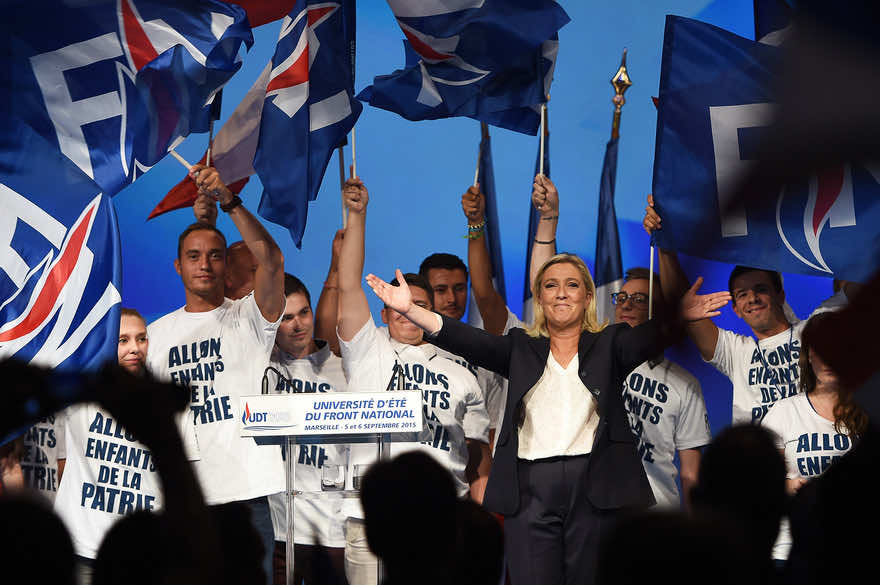France Front National
France’s Marine Le Pen is the envy of the far right in Europe. Convincing energetic young voters to embrace staunch conservatives can be a tough sell, but Le Pen enjoys support from (paywall) of French voters aged 18-24. This has for Le Pen’s party, the Front National (FN), throughout the country’s tight presidential race, which comes to a head this month. But in 2012, when Le Pen first ran for president, her support among voters under age 25 was around 15%. The dramatic upswing is a testament to Le Pen’s to rebrand her party to appeal to the young. France’s double-digit youth unemployment rate has sullied the image of its mainstream parties.
Apr 29, 2017. We delve into the past of France's National Front and ask, has it changed at all?

Its opaque political system, with party candidates chosen behind closed doors,. Hence the novel decision during this election by both the left and center-right parties to hold open primaries to select their presidential nominees.
The Front National, France’s far–right nationalist party, has become notorious since its founding in 1972 for its Eurosceptic, anti–immigrant, and economic protectionist policies, as well as its zero tolerance law and order policies. The party’s founder and honorary chairman, Jean–Marie Le Pen, has made numerous controversial public statements, many of them anti–Semitic. Though his daughter, Marine Le Pen, who took over control of the party in January 2011, has several of his anti–Semitic statements, she herself has been extremely vocal in her distaste for homosexuality and for immigrant rights—issues that, although they do not have the same historical negativity as anti–Semitism, are still rather controversial. The Front National has become somewhat infamous among French citizens—throughout my time here, I have yet to hear a positive comment about the party’s policies.
When I was in college and afterwards, playing in orchestras, there was a still a culture that said you 'had' to have an R13 to play in American symphonies. Buffet r13 serial number chart. For these reasons and others, they were a constant frustration for me to play.


France National Front Party
Yet, the Front National finished first in the 2014 European Parliament elections, receiving 24.84 percent of the vote and 24 of France’s seventy–four seats. If the French disagree so strongly with the Front National, why did over four and a half million of them vote for it?One possibility is that the voices being heard are not those of Front National supporters. Like in most countries, French journalism and political commentary is dominated by people with a relatively high level of education. Of citizens who voted for the Front National in both November 2011 and March 2012 (the elections directly before and after Marine Le Pen took control of the party) have less than the equivalent of an American high school diploma, and another 20 percent have the equivalent of an American high school education. Because people with less education are often underrepresented in the overall political discourse, the main demographic of Front National supporters may be consistently overlooked.Some analysts have also suggested that the Front National often receives a disproportionate number of votes because they are more successful in mobilizing their voters than many other parties. The Front National’s combination of intense political ideology and marginalized status among French political parties may cause their supporters to avoid the political apathy that more moderate voters often experience, and feel a greater need to make sure that their views are represented within the political sphere.
French Front National
This need, of course, results in significantly of Front National voters.Nevertheless, although the Front National did receive more votes in the 2014 elections than any other French party, some political analysts have that “hopes for real political power remain a fantasy,” for a variety of reasons—chief among them, the fact that the majority of France does not want the party to come to power. When Jean-Marie Le Pen successfully reached the second round of the 2002 presidential election, over a million people throughout France against the Front National, and his opponent, incumbent Jacques Chirac, received of votes. Although the Front National is consistently better at mobilizing its voters, French citizens were willing in 2002 to keep them from gaining too much political power. Whether this is still true, or if my host father’s prophecy does indeed have merit, remains to be seen.